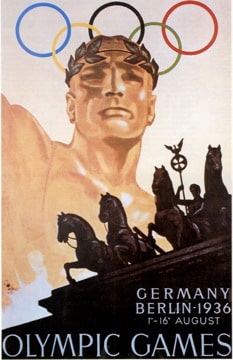

The Pack contains associated resources for the learning experience, typically in the form of articles and videos. There is a teacher Pack (with only teacher information) and a student Pack (which contains only student information). As a teacher, you can toggle between both to see everything.
Here are the teacher pack items for The Outbreak of World War II:


Overview In this experience, students watch historic video of the opening ceremony of the 1936 Summer Olympics in Berlin and take a poll about a possible boycott of the games. Then they learn about developments in Germany and Japan leading up to the outbreak of World War II, and they create a timeline of key events. Next they briefly research one of five other leaders related to World War II and evaluate their role in the start of the war. Finally the students learn about the U.S. policy of neutrality and Roosevelt’s actions before entry into the war. Students will collaborate in small groups for scene 3 to scene 4. They will divide a list of five leaders among small group members, so you may want to assign five students to each group. Objectives
In the previous lesson you learned about the rise of fascism in Europe and Japan. These regimes were directly responsible for aggressions that lead to the outbreak of World War II. In this lesson, you will learn about events throughout the 1930s that culminated in World War II, just twenty years after the end of fighting in World War I.
Objectives

In 1931, before Hitler had come to power in Germany, Berlin was chosen to host the 1936 Summer Olympics. After the Nazis took over and began instituting anti-Semitic policies, the International Olympic Committee debated moving the Games to a different city. Germany gave assurances that Jewish athletes would be allowed to compete, and the German Olympic team even included a Jewish international track and field star, Gretel Bergmann, as proof, but she was removed from the team at the last minute. The two-week long games were a major propaganda victory for Nazi Germany, presenting the country as one of peace and tolerance. A different reality lurked just below this shiny surface.
Watch this brief historic video of the opening ceremony, and read the accompanying text: Opening of 1936 Summer Olympic Games.Once the Nazis rose to power, do you think that the International Olympic Committee should have moved the 1936 Olympics to a different host city?
Do you think that other nations should have boycotted the 1936 Olympic Games in Berlin rather than give legitimacy to the Nazi Regime?
Ask students: Is it possible to totally separate politics from international sports competitions? Point out that there is no right or wrong answer to this question, which is relevant even today. For example, Algerian judo athlete Fethi Nourine withdrew from the 2020 Tokyo Olympics rather than face an Israeli competitor. During the apartheid years, South Africa was often banned from participating in various international competitions. If Russian troops are still attacking or occupying parts of the Ukraine close to the 2024 Summer Olympics, there will likely be calls to ban Russian athletes from the Games.
